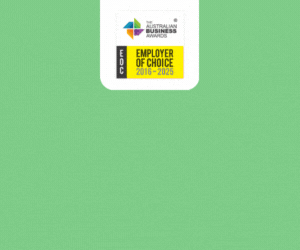Leadership
Provider
Workforce
Make sure you know the risks of contracting CMV

Jason Roberts
Jan 07, 2019
Save
Are you pregnant and working in an early childhood education and care (ECEC) setting? Do you know about congenital cytomegalovirus (CMV)? If not, you should. The United States-based National CMV Foundation has released a warning message about the increased risk to pregnant ECEC educators and parents contracting CMV which can harm their baby.
The Foundation said that in the US, 4,000 babies are born disabled by congenital CMV annually, with pregnant mums of toddlers in childcare and childcare providers/teachers at increased risk of being infected, however surveys have shown that most women have never heard of CMV, including childcare providers.The US research is mirrored in Australia, with CMV Australia saying that Australian studies have identified six in every thousand live births with congenital CMV infection, with one in every thousand births having a child infected with CMV experiencing a permanent disability such as hearing loss, vision loss, cerebral palsy, developmental delay or intellectual disability.
“There is an ‘inconvenient truth’ about CMV, the leading viral cause of birth defects, because it is often found in childcare settings,” says Lisa Saunders, leader of the Child Care Providers Education Committee, National CMV Foundation.
The Foundation said that toddlers can spread CMV to each other, their childcare providers, and families. The American Academy of Pediatrics (AAP) states that up to 70 per cent of children aged one to three years in group care settings excrete the virus, and an increased rate of infection - from 8 to 20 per cent - is experienced in caregivers/teachers via child-to-staff transmission in ECEC settings.
According to the US Centers for Disease Control and Prevention (CDC), “About one out of every 200 babies is born with congenital CMV infection...about one in five babies with congenital CMV infection will be sick from the virus or have long-term health problems...a pregnant woman can pass CMV to her unborn baby.”
The CDC provides a fact sheet of prevention tips, which include avoiding a child’s saliva by not sharing food, utensils or cups, and washing hands after changing nappies.
The AAP also recommends that female employees of childbearing age speak to their health care provider about the risks of CMV infection, and for childcare centre managers to inform their staff of the increased risks of exposure to CMV during pregnancy.
In the Australian context, ECEC providers have service level policies relating to CMV, with Staying Healthy in Child Care recommending pregnant women do not work with children under two years of age, to minimise risk in the ECEC context.
Australian CMV resources
In Australia, state governments have differing recommendations for pregnant ECEC educators working with young children. Some states, such as Queensland, suggest relocating educators who are pregnant to care for children aged over two to reduce contact with urine and saliva.
Useful Australian resources on CMV and its prevention in the workplace, can be found at the below links:
- CMV Australia website
- The WorkCover Queensland CMV in early childhood education and care services information
- The New South Wales Department of Health CMV and pregnancy fact sheet
- The Professional Support Co-ordinator (PSC) National Alliance factsheet on managing pregnancy within childcare
- Raising Children Network information about pregnancy and women’s rights in the workplace.
The Fair Work ombudsman also provides useful information on entitlements for pregnant employees.
Don’t miss a thing
Related topics
Affordability & Accessibility
Compliance
Legislation
Leadership
In The Field
Advocacy
Marketplace
Corporate activity
Professional development
Allied Fields
Innovative Research
Understanding Children
Family Day Care
Long Day Care
NQF and Policy Changes
Outside School Hours Care
Politics
Preschool
General News
Supply & Demand
Property
Report Summaries
Changes
Reporting
Examples
Services
Personnel Appointments
Events News
Products

















